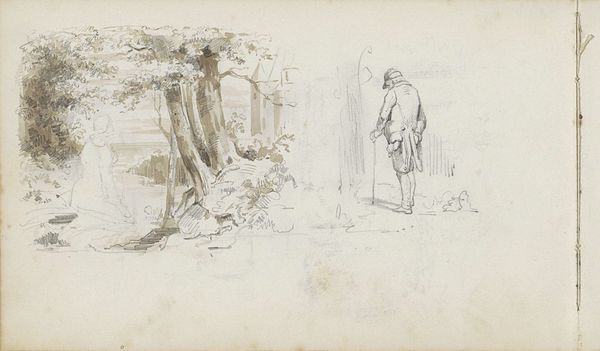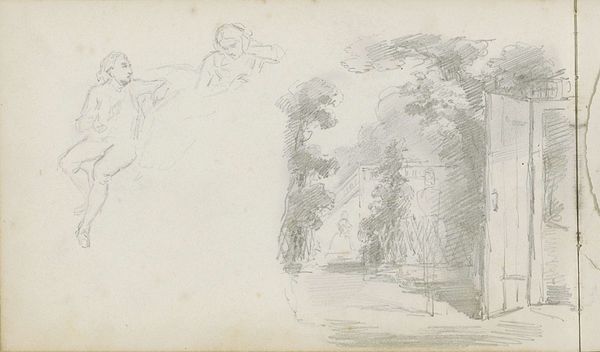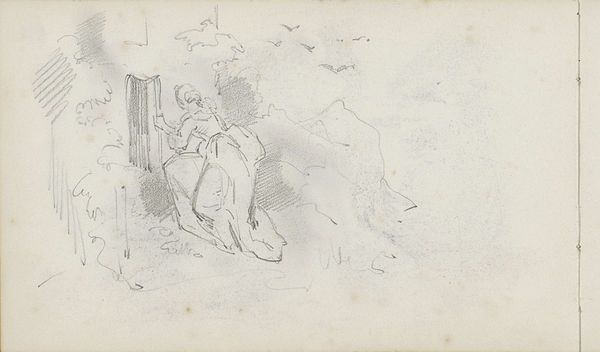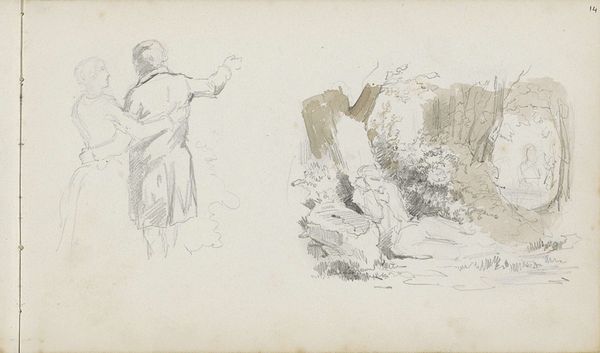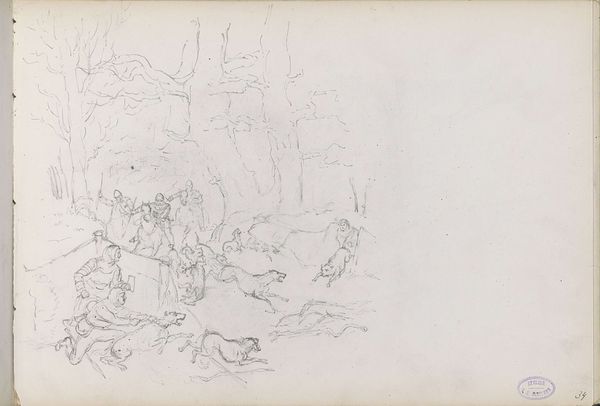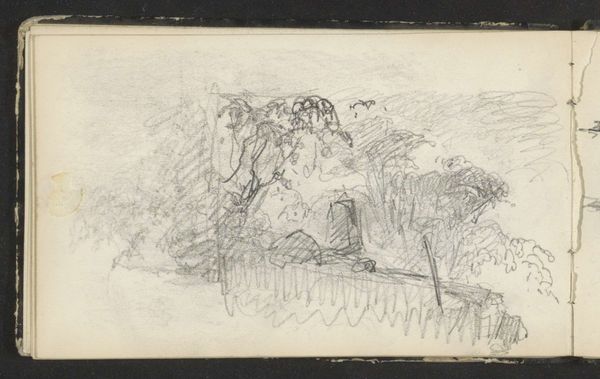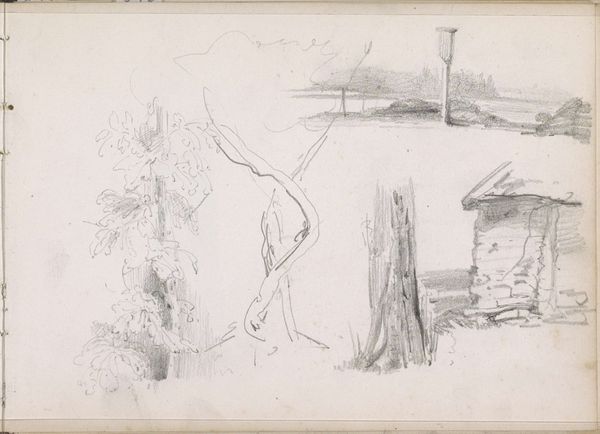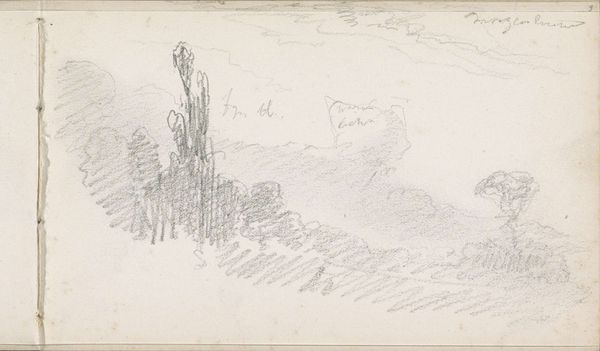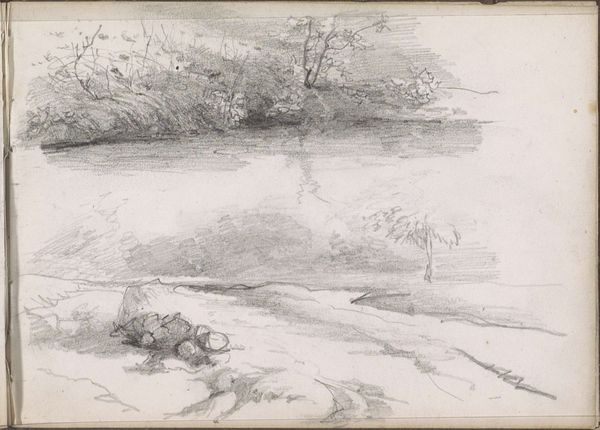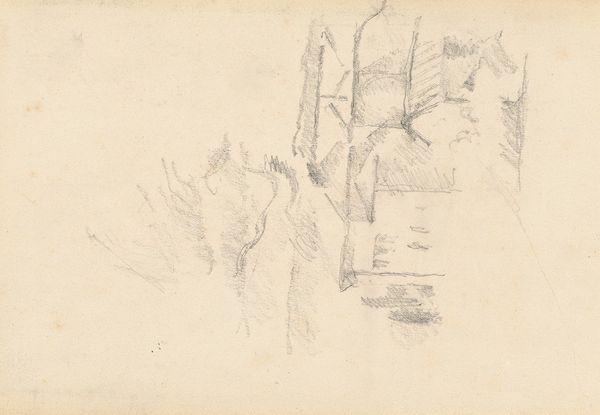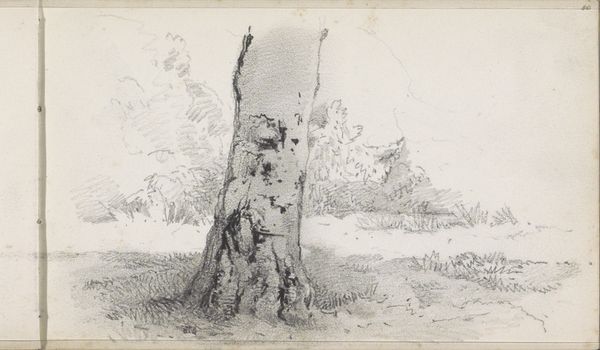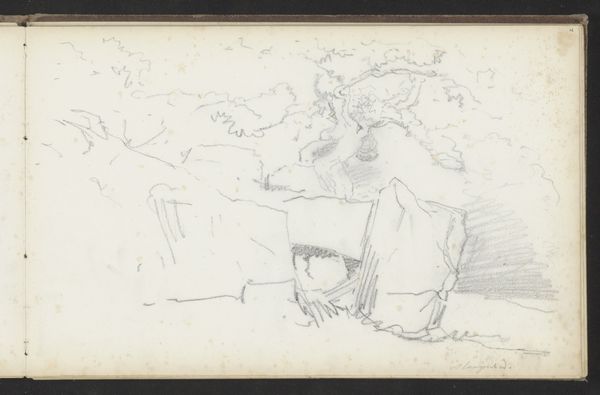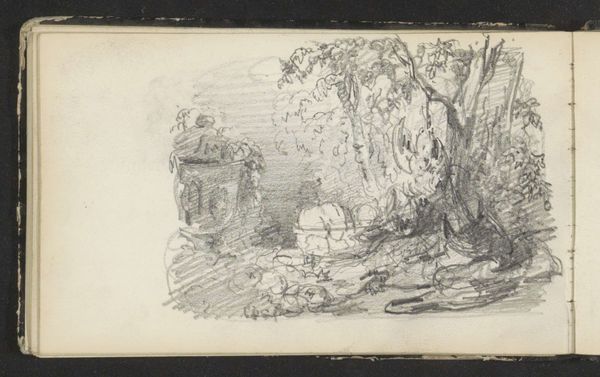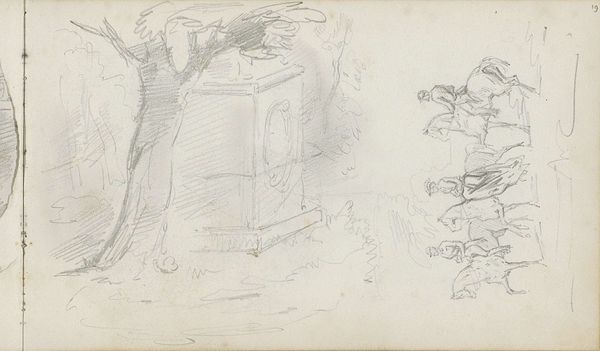
drawing, paper, pencil
#
drawing
#
pencil sketch
#
landscape
#
figuration
#
paper
#
pencil
Copyright: Rijks Museum: Open Domain
Editor: So, this drawing is titled "Twee figuren bij een boom," or "Two Figures by a Tree," made with pencil on paper by Charles Rochussen, likely sometime between 1840 and 1860. It’s a simple landscape sketch, and what strikes me most is how the figures seem isolated, almost detached from each other despite being in the same scene. What do you see in this piece? Curator: I see a reflection of the changing social landscape of the mid-19th century. Rochussen, though known for genre scenes, here presents a subdued, almost melancholic view of humanity's relationship with nature and with each other. The figures aren't interacting, as you noted, and their placement within the landscape speaks to evolving notions of individualism and perhaps even alienation during the rise of industrial society. What power dynamics do you think are being displayed here? Editor: That’s a great point! I hadn't considered it in terms of industrialization. The figure on the left seems to be standing, perhaps observing or even guarding the figure seated by the tree. Maybe it implies something about class or gender roles? Curator: Exactly! It begs the question: what does it mean to represent figures within a landscape at this moment in time? This wasn't simply about picturesque beauty; it was often a subtle commentary on societal hierarchies and shifting power dynamics. Consider the very act of sketching, a portable form of documentation – how might that relate to the experience of nature itself being altered? Editor: So, Rochussen might be hinting at these anxieties of change, rather than simply documenting a scene? Curator: Precisely! Art serves as an excellent witness, especially when it appears at first to be innocuous. Close looking might lead us towards questions concerning marginalization, cultural representation, and environmental destruction, particularly thinking about who benefits from landscape and nature. Editor: Wow, I’ll never look at a landscape drawing the same way again. Thank you! Curator: It is all about broadening our field of vision to be more critical and nuanced about the world around us. I learned so much as well; let’s do this again soon!
Comments
No comments
Be the first to comment and join the conversation on the ultimate creative platform.
